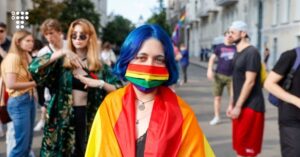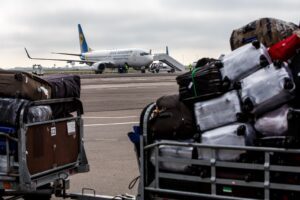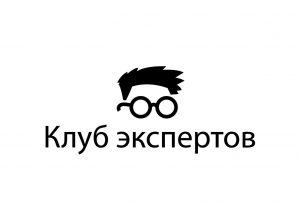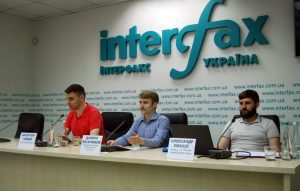
According to Ukrainians, the countries of the Arab world are neutral in the Russian-Ukrainian war. This was revealed by a joint study by Active Group and the Experts Club think tank, “Attitudes of Ukrainians toward the Middle East and Central Asia,” which was presented at Interfax-Ukraine on Tuesday.
“The analysis includes a predominantly positive attitude of our citizens towards such countries as Israel (72.5%) and Turkey (55%), while the attitude towards other countries in the region is mostly neutral. Ukrainians are extremely negative about Iran (76%) and mostly negative about Afghanistan (52.6%),” said Oleksandr Poznyi, director of the research company Active Group.

In addition, the expert added that Ukrainians are mostly positive about countries with which they have trade or cultural ties. This is natural, as such ties promote mutual respect between societies and countries.
In his turn, Andriy Yeremenko, founder of the research company Active Group, emphasized that the attitude of Ukrainians towards the Middle East and Central Asia varies depending on many factors.

“We can see that the attitude of citizens is really certain only in relation to two countries – Iran and Israel. These are the countries where the percentage of those who find it difficult to answer is less than 20%. The rest of the countries have a much higher percentage of uncertainty, which indicates that Ukrainians are not well informed about these countries,” emphasized Eremenko.

Maksym Urakin, founder of the Experts Club think tank, added that building cooperation with the Middle East and Central Asia is very important for the development of the Ukrainian economy, especially in the agricultural and IT sectors. These industries have great potential for development and can become the basis for a mutually beneficial partnership.
“It is necessary to implement a state strategy to reduce the trade deficit and increase Ukraine’s export potential. This will create a more balanced and sustainable economy that will be less dependent on external factors. Ukraine may be interested in agricultural products, IT clusters, and educational services. We are interested in sales markets, agricultural technologies, metallurgy, and chemistry,” Urakin emphasized.

According to him, trade between Ukraine and the countries under study is currently growing rapidly.
“Turkey is the largest trading partner among the countries of the Middle East and Central Asia, accounting for more than half of all trade with these countries. This shows the importance of Turkey for the Ukrainian economy,” the founder of Experts Club added.
According to Urakin, a balanced foreign economic policy in the region can not only significantly improve Ukraine’s relations with Middle Eastern countries, but also have a positive impact on the overall state of the economy.
The results of the study are available here.
ACTIVE GROUP, ALEXANDER POZNIY, ANDREY EREMENKO, CENTRAL_ASIA, ECONOMICS, EXPERTS CLUB, MAXIM URAKIN, MIDDLE_EAST, POLL, SOCIOLOGY

38% of Ukrainians declare their negative attitude towards LGBT people, relatively indifferent attitude prevails (45%), 13% declared a positive attitude, according to the results of the study “Perception of LGBT people and their rights in Ukraine”, conducted by the Kyiv International Institute of Sociology (KIIS) May 13-18, 2022.
If among people aged 70+ only 30% have a positive or indifferent attitude towards LGBT people, then among 18-29-year-olds there are already 83%. Among respondents with higher education, 66% have a positive or indifferent attitude towards LGBT people, and only 49% among respondents with complete secondary education or lower. In terms of income, the proportion of those who have a positive/indifferent attitude is growing from 47% among the poorest respondents to 66.5% among the richest.
At the same time, there is no significant regional difference: in the west of Ukraine, 56% have an indifferent or positive attitude, in the center – 60%, in the south – 57%, in the east – 56%.
Only 11% expressed a negative attitude towards the participation of LGBT people in the defense of Ukraine from Russian aggression, 66% of respondents expressed their approval.
64% of respondents are of the opinion that LGBT residents of Ukraine should have the same rights as other citizens of the country. Only 26% are in favor of some restrictions.
Among those who have a positive or indifferent attitude towards LGBT people, the vast majority (87.5% and 78% respectively) believe that they should have the same rights. Even among those who generally have a negative attitude towards LGBT people, 42% are in favor of equality (48% are for restrictions). Younger, more educated and more affluent respondents, as well as residents of large cities, are more supportive of equality.
“The inconsistency of respondents on LGBT rights is manifested in the issue of registered partnerships for same-sex couples without the right to joint adoption. Even for this format, support is 24%, while 42% do not support such an initiative. At the same time, for another 27% this issue indifferent… Among those who have a positive attitude towards LGBT people, 58% support the idea of a registered partnership, 20% do not support it… Among those who have a negative attitude, the majority (71.5%) are against such an idea, although 10% support it,” the KIIS press release says.
During the study, 2,000 respondents were interviewed by computer-assisted telephone interviews (CATI) in all regions of Ukraine controlled by the government until February 24, 2022. The statistical error of such a sample (with a probability of 0.95 and taking into account the design effect of 1.1) does not exceed 2.4% for indicators close to 50% and 1.1% for indicators close to 5%, but under conditions war, an additional systematic deviation is added, which does not prevent the results obtained from maintaining a high representativeness.

The State Agency for Tourism Development of Ukraine plans to launch a poll campaign of foreign tourists at the border in August or September, Head of the agency Maryana Oleskiv has said.
“We will soon announce a tender, and I think that in August or September there will be such a poll. They will ask the purpose of arrival, time of stay, what people plan to visit, what expenses are planned, etc. This will allow us to understand how many tourists we have from the entire entrance flow, who is this tourist, what are her/his preferences, where does she/he get information from, the purpose of the visit,” Oleskiv told Interfax-Ukraine.
In addition, according to her, the State Agency for Tourism Development will also announce a tender for the purchase of these payment systems.
“Since they will most accurately give us a picture of exactly the costs and composition of costs, as well as show where the foreign tourist comes from and what he spends his money on. This will allow us to more accurately plan our marketing campaigns,” she said.
Among the priority countries for inbound tourism from abroad, Oleskiv named Saudi Arabia, Qatar, the United Arab Emirates, Kazakhstan, Uzbekistan, Azerbaijan, Poland, as well as Israel and China.
“So far, China does not allow its citizens to actively travel. But we are at a ‘low start.’ As soon as we understand that the country starts to provide opportunities for citizens to travel, we will be actively involved,” she said.
Oleskiv expects that in 2021 Ukraine will be able to reach half of the volume of international tourism in 2019, and in 2023-2024 tourism worldwide should return to the pre-quarantine level.

Rural people in general feel more secure than urban residents in the current situation in Ukraine, says political analyst Serhiy Lozovsky.
“People in villages feel themselves the least exposed to danger. And sociological studies confirm this. Rural residents have enough inner strength to secure themselves and their families. As to residents of cities, where government agencies must ensure security, there is a problem which makes them feel less secure in cities,” Lozovsky said, while commenting on a joint survey conducted by the Active Group and the Expert Club in a program on the latter’s YouTube channel.
According to the expert, this is caused by the fact that law enforcers often demonstrate poor response to acts of violence and violation of law.
“This often happens during mass events when law enforcers stand in line and show no response to beatings they witness,” Lozovsky said.
Earlier, at the press center of the Interfax-Ukraine News Agency, the Active Group and the Expert Club presented the results of their second joint survey. This time they studied Ukrainians’ opinion about work of central government agencies and local governments, unemployment growth caused by the quarantine restrictions, the population’s attitude towards official statistics on the coronavirus (COVID-19) incidence rate, as well as the main issues of concern for urban and rural residents.
The survey showed that the population in general negatively treats the incumbent government. Local governments enjoy the highest rating among Ukrainians – 45% of respondents praised their work, 38% said the president was doing a good job, and only around 20% praised the country’s prime minister.
Some 10.5% of those polled said the National Police worked good, while more than 55% said the opposite. Local police stations have the highest rating – 22% praised their work, while 39% said it was bad.
The main issues of concern for urban and rural residents include: quality of roads (54% of respondents), condition of the public facilities (44.7%), condition of the infrastructure inside buildings (43.5%), unemployment (34.2%), housing and utility tariffs (31.1%), mass renaming of streets, cities and villages (29.2%).
Additional information about the survey is available on the website of Active Group and on the Expert Club YouTube channel.
The video is available on the YouTube channel:
ACTIVE GROUP, BOHATYRIOV, EXPERT, EXPERT CLUB, LOZOVSKY, POLL, PUBLIC OPINION, SOCIOLOGY

Active Group and Expert Club have presented a joint sociological survey at the press center of the Interfax-Ukraine News Agency.
The opinion survey covered Ukrainian citizens’ assessment of work of the government and the national police, their attitude to a rise in unemployment and the official statistics on COVID-19 sickness rate, the main issues of concern of urban and rural residents, religion-related problems, etc.
The invited experts – political analyst Serhiy Lozovsky, political expert Valentyn Haidai, political scientist Danylo Bohatyriov, Head of the Active Group sociology company Oleksandr Pozniy – shared their opinions about the results of the survey and commented on the most interesting trends discovered during the poll. The experts came to the conclusion that the ruling party is likely to lose ground, while regional projects will strengthen their positions at the local elections on October 25.
According to the survey, the population in general negatively assesses the work of the central government agencies. Some 38% respondents praised the president’s work and less than 20% said they were positive about work of the prime minister and the Cabinet of Ministers in general. Only 10% of respondents gave a positive assessment of the national police and 22% praised the patrol police (district offices in regions).
Most of the polled Ukrainian citizens are satisfied with the work of local governments: 45% of respondents gave them 4 and 5 points on a scale from one to five.
A total of 33% respondents said that they have experienced changes in their work schedule and employment following the introduction of lockdown restrictions. Some 12.4% switched to remote work, 10.6% left for unpaid vacation, 5% had their work schedule curtailed, 3.1% were laid off, 1.9% left for paid vacation. Meanwhile, 34% of respondents continued to work as regular.
Around 55% of respondents said they did not trust the Health Ministry’s statistics on COVID-19 sickness rate, of them 34.2% said the figures were overstated, 20.5% said the figures were understated. Some 18.6% of those polled fully trust the statistics, 14.9% – trust it partially.
Some 72% respondents said they are religious people (regardless of confession), while 24% said they are atheists.
The main issues of concern mentioned by urban and rural residents include the quality of roads (54%), condition of public spaces (44.7%), condition of domestic infrastructure (43.5%), lack of jobs (34.2%), housing and utility tariffs (31.1%), mass renaming of streets, cities and villages (29.2%).
You can find additional information about the survey on the website of Active Group and on the Expert Club YouTube channel.
The video of the presentation is available on YouTube: https://www.youtube.com/watch?v=ttCb81mQqbk
ACTIVEGROUP, EXPERT, EXPERT CLUB, POLL, PUBLIC OPINION, SOCIOLOGY

Almost 60% of Ukrainians call themselves Europeans, according to the survey held by Active Group sociological company. This is evidenced by the results of a common study conducted by Active Group sociological company and the Experts Club company and presented at the Interfax-Ukraine agency.
“Being asked if he/she considers himself/herself a European, 43.4% of respondents said affirmatively, 14.6% said rather yes, while 13.6% said rather no, and 24.1% said definitely no,” said head of Active Group Oleksandr Pozniy at a press conference at Interfax-Ukraine in Kyiv.
Another 4.3% found it difficult to answer this question.
According to the expert, 64.5% of citizens consider it important to introduce a visa-free regime with the countries of the European Union, while 72.3% did not use these preferences.
A number of 25.7% of respondents said visa-free regime is very important, according to 38.8% of the respondents it was rather important, for 18.8% – rather not important and 8.2% of the respondents considered it to be strongly useless.
According to the survey, only 23.5% of respondents took advantage of the “visa-free” opportunity to travel to European Union countries, 4.2% found it difficult to answer the question.
According to Active Group, the survey was conducted by telephone interview on June 7-9. Some 1,236 respondents were interviewed in all regions of Ukraine, except for the uncontrolled territories and Crimea. The study is representative by age, gender and place of residence. The sampling error does not exceed 2.8%.